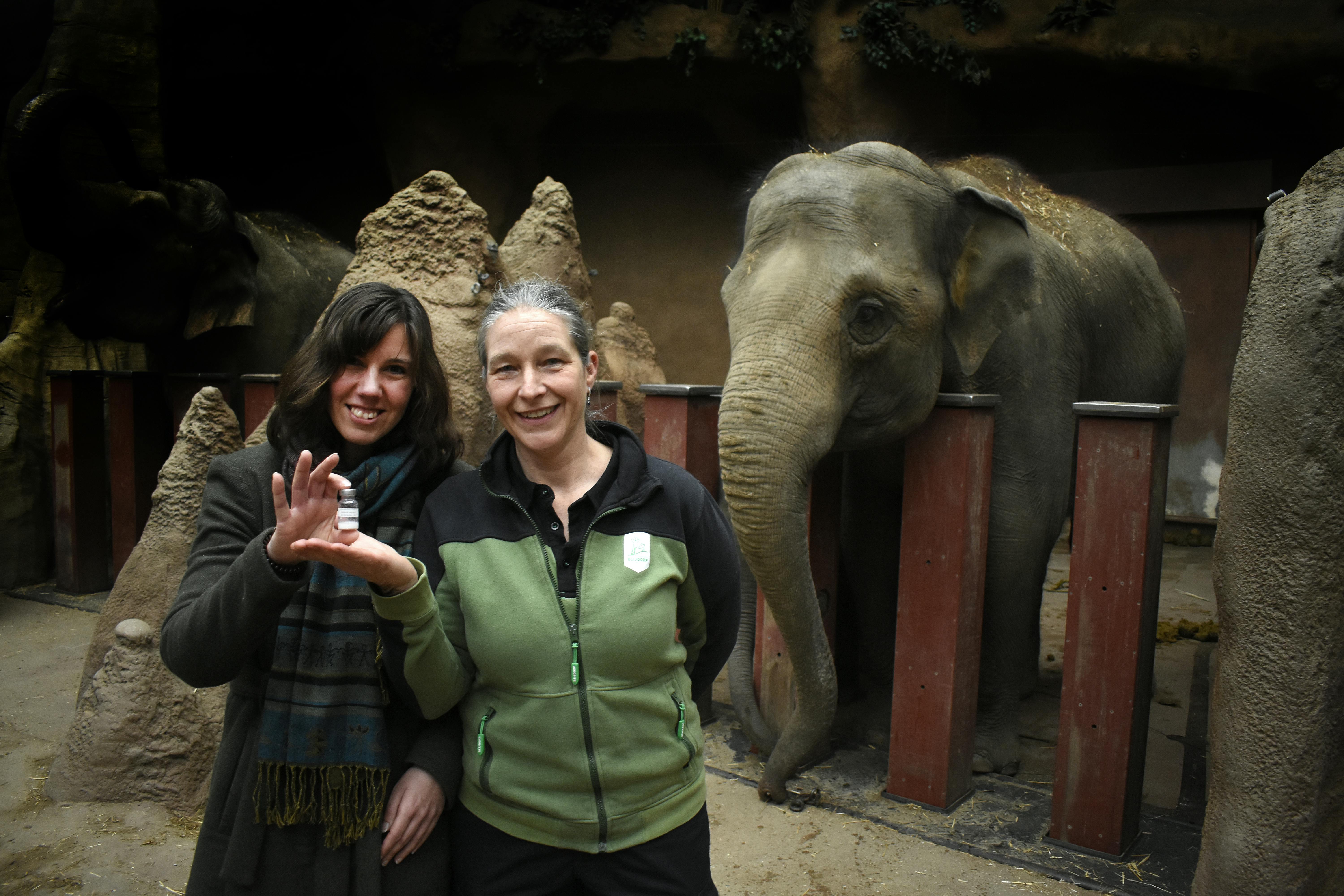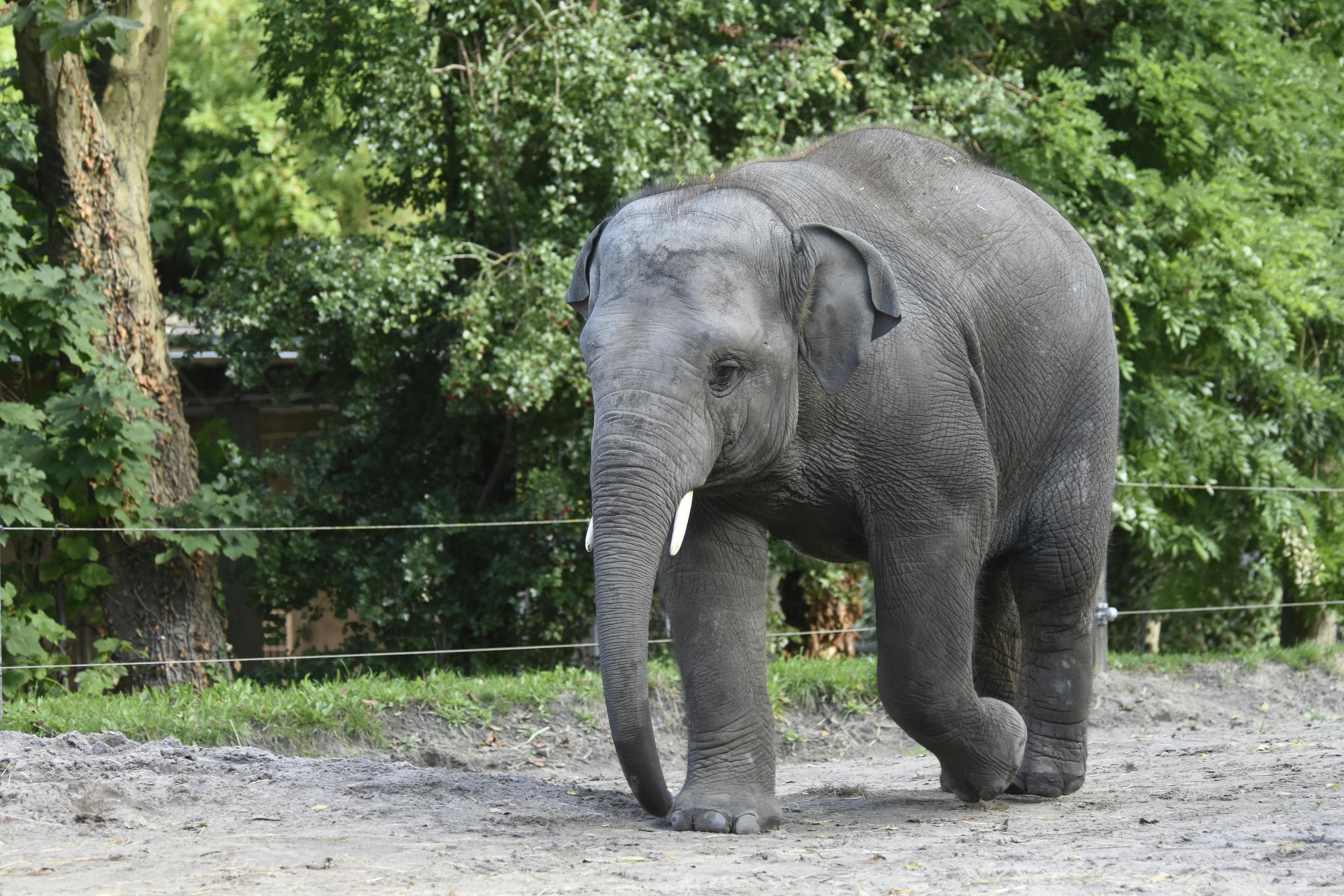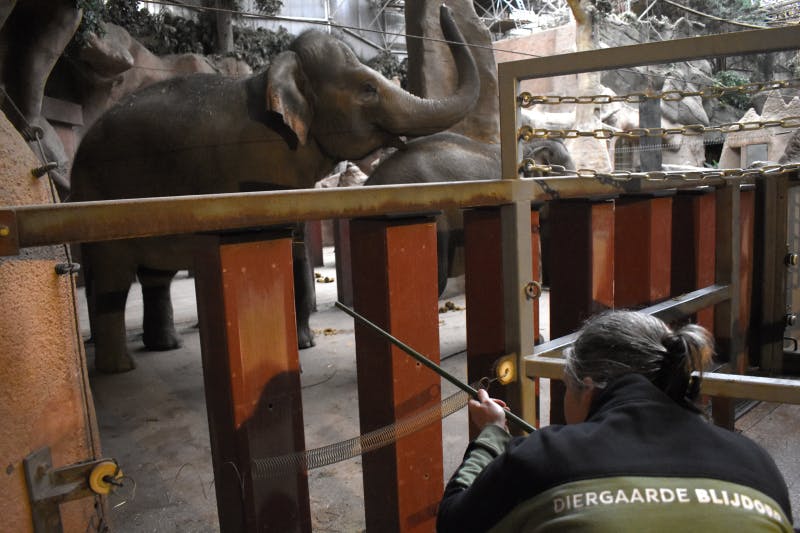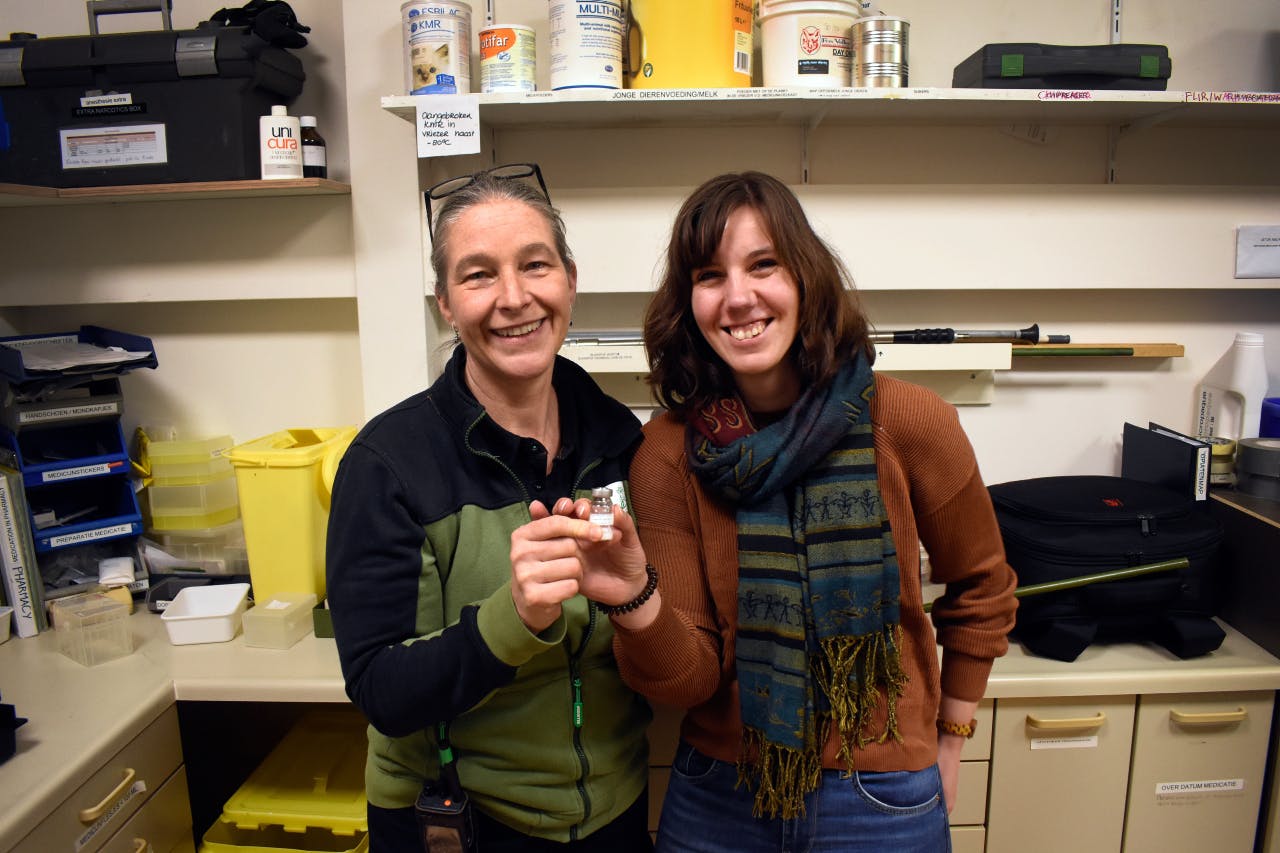
The Faculty of Veterinary Medicine, Utrecht University, in collaboration with Rotterdam Zoo, Eindhoven Zoo, Amersfoort Zoo, Wildlands Adventure Zoo Emmen and ARTIS have started testing a vaccine to protect young elephants from the deadly elephant endotheliotropic herpesvirus (EEHV) this week. This virus has been causing high mortality rates among young elephants worldwide for years, both in zoos and in the wild. The first vaccinations took place at Rotterdam Zoo, also responsible for maintenance of the genealogical register for the Asian elephant in Europe. The aim of the study, of which the Pairi Daiza Foundation is currently one of the main sponsors, is to determine whether vaccination is an effective way to protect young elephants.


Twenty percent of Asian elephants born in zoos die as a consequence of EEHV infection. Many young elephants have also died from it in the wild in recent decades. In almost all cases, these are young elephants, between one and 10 years of age. Researchers from the Faculty of Veterinary Medicine, Utrecht University (Dr. Tabitha Hoornweg, Dr. Xander de Haan, Prof. Dr. Victor Rutten) and the former veterinarian of Rotterdam Zoo (Drs. Willem Schaftenaar) are investigating whether vaccination is an effective way to protect elephants from EEHV. They are the first elephants in the European Union to be vaccinated against herpes.

Research of Utrecht University shows that young elephants lacking antibodies against EEHV are the ones most at risk of becoming seriously ill. Adult elephants have usually built up sufficient immunity, whereas young animals rely on antibodies obtained from their mother for protection during their first year of life. After this period, the amount of antibodies drops, significantly increasing the risk of illness and death.
The vaccine that will now be tested was developed by the researchers of the Faculty of Veterinary Medicine. It consists of a copy of a protein complex located on the surface of the virus that the virus uses to enter elephant body cells. After injection of the vaccine, the immune system will build up defenses against this protein complex. When the animal is subsequently infected with the virus, the antibodies created are expected to recognize the virus and prevent it from doing harm.
In the study six elephants older than five years will initially be vaccinated to test the safety of the vaccine. If these elephants do not experience any significant side effects, younger elephants, who do not have sufficient antibody levels, will subsequently be vaccinated. This may offer a definitive solution to EEHV-related mortality in zoos.

The development and testing of the vaccine is possible thanks to the intensive cooperation and financial support of zoos and organizations such as ZOO Planckendael (Koninklijke Maatschappij voor Dierkunde Antwerpen), the Pairi Daiza Foundation, Rotterdam zoo/Diergaarde Blijdorp, the European Association of Zoos and Aquaria, DierenPark Amersfoort Wildlife Fund, the Marjo Hoedemaker Elephant Foundation, Stichting Animales, Stichting Peer Zwart Fonds, a family fund, Foundation Abri voor Dieren, Utrecht University Foundation, Zoological Center Ramat Gan, the Countess of Bylandt Foundation, Omarm Olifanten and many other (anonymous and/or private) donors. This joint effort underscores the importance of (international) cooperation in the conservation of endangered species.
